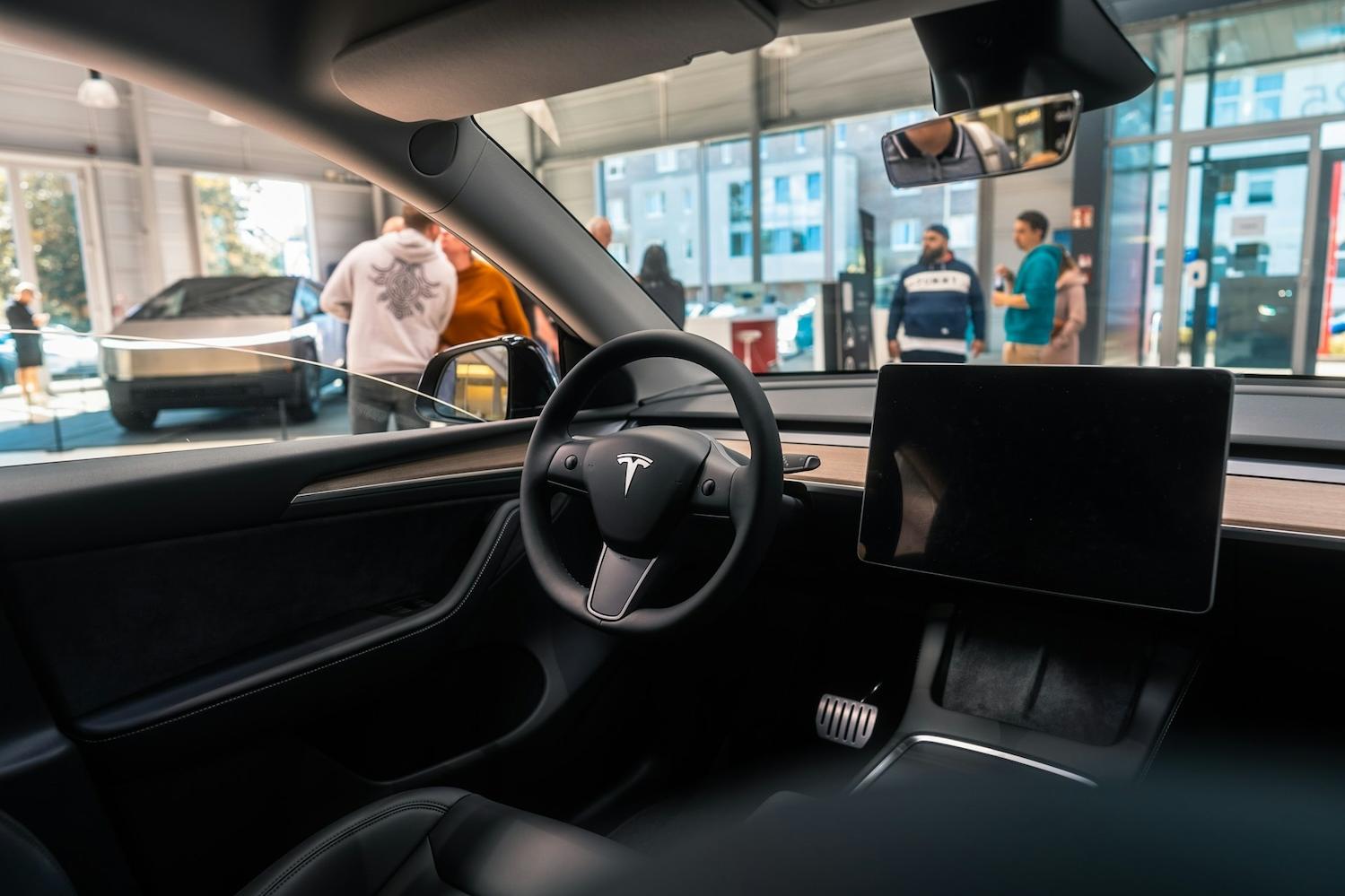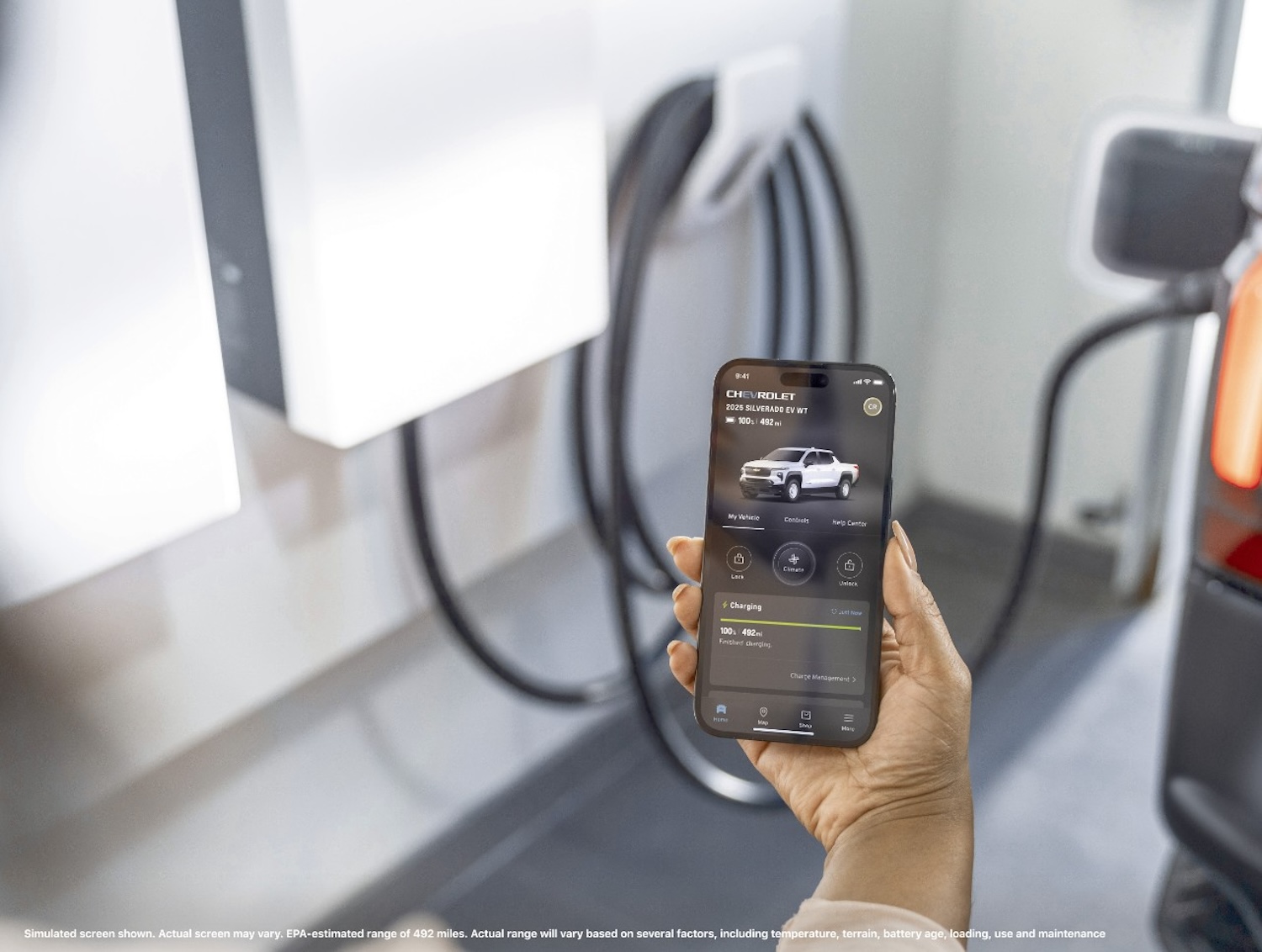
(Image: Maxim/Unsplash)
General Motors drew scorn from climate advocates when it abruptly canceled a brief experiment with electric vehicles in the 1990s. Today, the company has climbed back from its reputational hole to earn the No. 2 spot for EV sales in the U.S., second only to industry leader Tesla. It’s a story of persistence, patience and trust-building — for GM, at least.
GM rises from the ashes of EV1
GM managed to transform itself from the most well-known and widely reviled EV maker of the 1990s to a leader in the electrification movement of the 21st century. Along the way, it also earned praise for pushing the envelope on zero waste and pursuing 100 percent renewable energy.
That is a far cry from the company’s former reputation as the killer of the electric car. The short life of General Motors’ EV1 electric vehicle began in 1996. After an initial run of just 1,100 cars, GM shut down production of the car in 1998 and closed the EV1 electrification program entirely in 2003, drawing a firestorm of criticism.
Fast forward 22 years, and GM now proudly touts its position as a co-leader of EV sales in the U.S. “Driven by our broad portfolio of 13 EVs from Chevrolet, Cadillac and GMC, GM has solidified its position as the No. 2 seller of EVs in the U.S., with more than 62,000 EVs sold in the U.S. year to date through May,” the company reported last month.
Building EV trust with a gas tank
Partly based on the EV1 experience, GM has carefully cultivated customer trust — which became evident when the automaker gave the EV market another try in 2010. By then, the competition with Tesla had already started, with the introduction of the Tesla Roadster two-seat sports car in 2008. Rather than going head-to-head against Tesla for a share of the 100 percent battery-operated luxury car market, GM courted cautious, mid-income car buyers with a gas-enabled hybrid called the Chevrolet Volt.
The Chevy Volt provided GM customers with the new experience of an EV, wrapped with the familiar security of a gas tank. The Volt featured a gas-fueled generator that supplied electricity to supplement the batteries. In effect, the gas tank acted as a battery range extender, an arrangement that has become commonplace among other EV makers today.
Still, the competition intensified in 2012 when Tesla launched its first electric sedan, the Model Y, into the market. By the time GM unveiled its all-electric Chevrolet Bolt sedan in 2016, Tesla was already rocketing into automotive history as the global leader in EV sales. The book seemed written on this EV competition — almost.

Brand reputation on the ropes
Although GM continues to run a distant second to Tesla in EV sales, its steadfast pursuit of the zero-emission market enabled the automaker to capitalize on the recent widely-reported missteps of Tesla, or more specifically of Tesla CEO Elon Musk.
Jackie Charniga, who covers GM for the Detroit Free Press, has been eyeing the trend all year. "[GM] accelerated electric vehicle sales and market share in the first half of the year thanks to expanded electric offerings across three of its four brands," Charniga reported last week. “Meanwhile, consumer sentiment for Texas-based rival Tesla cratered this spring due to criticism over Musk's hands-on involvement in Washington politics."
Put another way: “GM is quietly building trust while Elon burns it," Paul Waattii of the analytics firm AutoPacifi-c told Charniga.
Industry analysts have also been paying attention to the trust factor. In February, for example, GM earned the 2024 Highest Overall Manufacturer Loyalty from S&P Global Mobility, its tenth such award in as many years. “This is the tenth consecutive year that GM has received this award, demonstrating the continued trust and confidence customers place in GM’s brands,” a press statement from the company reads.
GM has leveraged the trusted brand names in its portfolio of conventional vehicles, including the Chevrolet Equinox and Blazer, to offer drivers a wide range of electric options under the same familiar brands, Charniga of the Free Press reports.
In a more subtle form of support for customer trust, GM is among the legacy automakers to emphasize its full lineup including conventional vehicles as well as EVs, enabling customers to feel in control of their choices. “We're all about giving our customers more choices. We made the right investments over the last few years to bring the industry’s broadest ICE and EV portfolio to market,” GM spokesperson Tara Kuhnen told the paper.
GM is still far behind Tesla in the No. 2 slot, but the gap is shrinking. Tesla’s U.S. sales for the first six months of 2025 totaled an estimated 225,000 units, down 13 percent from the same period last year, according to data cited by the Free Press. Meanwhile, GM’s numbers came in at 78,167 over the same period, an increase of 111 percent over last year.
All the signs were there
As for brand reputation, if you can’t name the CEO of GM off the top of your head, that’s not an accident. As the first female to head a major auto company, Mary Barra has held the position since 2014.
In contrast, Elon Musk’s legendary thirst for publicity has tied his name inextricably to the Trump brand. Years before he carved out a position as the head of U.S. President Donald Trump’s “DOGE” budget-cutting office, Musk was already raising concerns among the sustainability and environmental, social and governance (ESG) professionals who would typically be the keenest on EVs. S&P removed Tesla from its ESG Index in 2022.
In a 2022 blog post, Margaret Dorn, senior director and head of ESG indices for S&P Dow Jones in North America, explained the omission. “Tesla was ineligible for index inclusion due to its low S&P DJI ESG Score, which fell in the bottom 25 percent of its global ... industry group peers,” Dorn wrote.
Responding to Dorn on Twitter, Musk chose not to defend Tesla on the terms of ESG principles and instead chose to attack ESG reporting itself. “ESG is a scam. It has been weaponized by phony social justice warriors,” Musk wrote on the social media platform, which he purchased later that year and eventually renamed X.
Musk’s opinions about ESG aside, the numbers tell the tale of a classic boycott in all but name, as Tesla’s sales numbers continue to reflect the situation of a brand in a downward spiral. After all, even if Musk doesn’t care about ESG, many prospective auto buyers do.

Tina writes frequently for TriplePundit and other websites, with a focus on military, government and corporate sustainability, clean tech research and emerging energy technologies. She is a former Deputy Director of Public Affairs of the New York City Department of Environmental Protection, and author of books and articles on recycling and other conservation themes.













